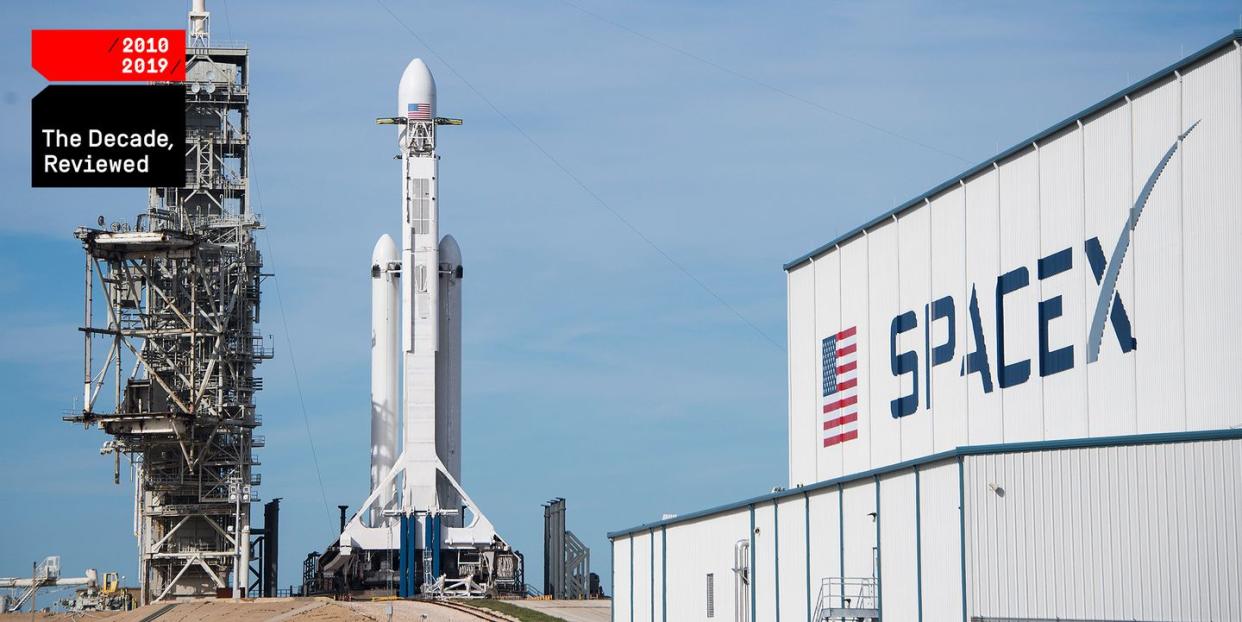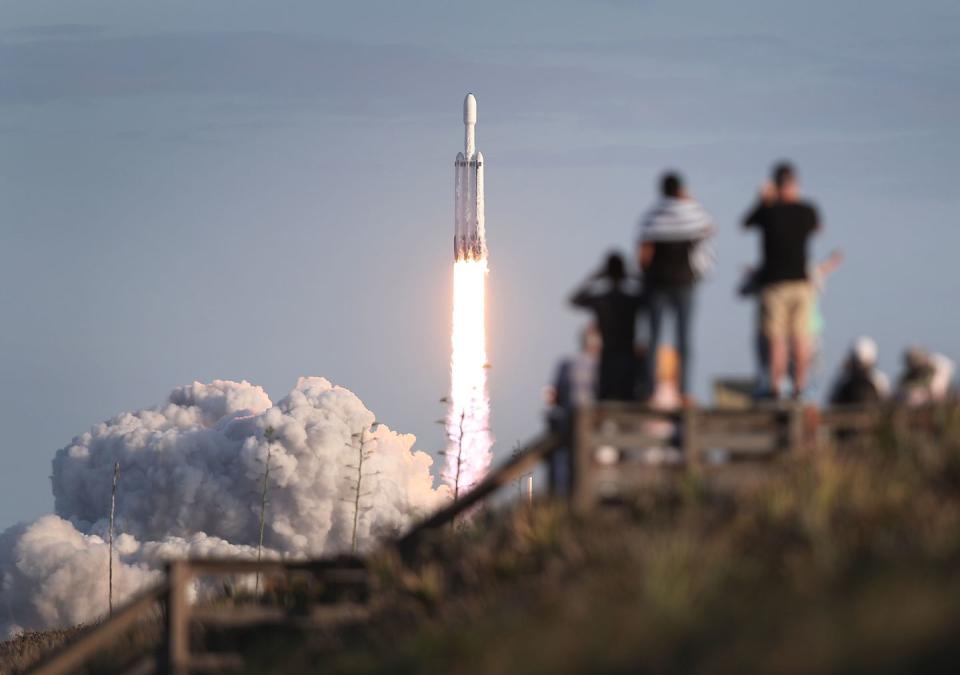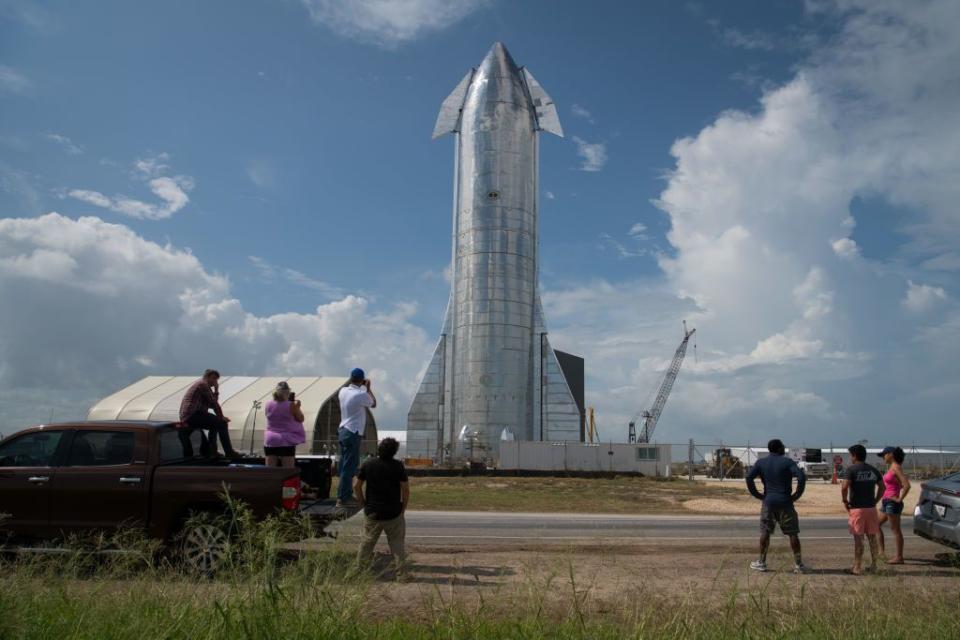The SpaceX Decade: How One Company Changed Spaceflight Forever


The Decade, Reviewed looks back at the 2010s and how it changed human society forever. From 2010 to 2019, our species experienced seismic shifts in science, technology, entertainment, transportation, and even the very planet we call home. This is how the past ten years have changed us.
Something very strange happened to spaceflight over the past 10 years: Commercial Space companies now have devotees. Like impassioned sports fans, their conflicts play out on social media, where detractors and worshippers swap insults and Delta-v rocket equations with equal invective.
With this is mind, dubbing the 2010s as “The SpaceX Decade” is guaranteed to generate some internet ire, but this is not a declaration based Elon Musk worship or admiration for the visionary team led by Gwynne Shotwell. What enabled SpaceX to entirely disrupt global spaceflight during the past decade was not imagination—it was execution.
The Power of Engineering

Strip away Musk’s Iron Man celebrity, the dreams of a Mars base, and even his super rich customer paying to fly around the moon. In fact, forget Musk and his human spaceflight aspirations altogether. What’s left is a launcher that—above all else—used clever engineering to create new vehicles that are launching payloads right here and now. That’s real money, real hardware, and real missions.
And a lot can happen in just a decade. On June 4, 2010, SpaceX launched its first Falcon 9 with the first stage burning up in the atmosphere upon re-entry. On February 6, 2018, the Falcon Heavy (a souped-up variant of the Falcon 9) successfully launched with its two side boosters returning for a safe landing in one of the most spectacular spaceflight moments of the decade.
These are things SpaceX has done, not just planned or even got funded, and no one in commercial space comes close. Richard Branson, Jeff Bezos, ULA, and the other commercial “space barons” have launched exactly zero orbital space missions. Any suborbital business they conduct is fairly moribund in comparison to SpaceX. This was not the Decade of Commercial Spaceflight.
Hopefully, that’s coming next.
The SpaceX Effect
Achievement is the first argument for dubbing this the SpaceX Decade. The other major consideration is impact. The “SpaceX effect” is real.
As a report by Jeff Matthews, specialist at Deloitte Consulting, puts it: “The rapidly decreasing cost of launch over the past decade largely stems from the decision of Elon Musk’s Space Exploration Technologies (SpaceX) to develop a vertically integrated vehicle production line that was more reliable, adaptable, and efficient.”
Now, new hardware is being developed to compete. Emboldened investors and government officials are opening doors to more players. NASA is following commercial crew mold for lunar landers, low-Earth orbit sats, and all sorts of stuff. If SpaceX failed to kick down the doors and (more importantly) succeed in their given missions, these opportunities would not have manifested so quickly and boldly.
Or, as the Deloitte report puts it: “This disruption or ‘democratization’ of space as a new resource for these companies, instead of just a few select players, is fundamentally changing the commercial landscape.”
This impact is not limited to the U.S. On the global scale, SpaceX’s now-proven reuseable rockets are the rage. On the business side of things, more nations (including China) are supporting private commercial companies to help drive innovation. Arianespace, the stalwart European launchers, is fielding new rockets in part due to SpaceX’s new price and capabilities.
But, in all likelihood, the next decade won’t belong to SpaceX. But for spaceflight fans, that's a good thing.
Next Up: SpaceX, Dethroned

SpaceX will be facing some ambitious projects (Maezawa’s moonshot and Starlink come to mind) that could derail the company should they go wrong. But this is a case where others are poised catch up to the market leader with their own innovative progress, rather than closing the distance due to a stumble.
Yes, the “market leader” is referring to SpaceX. The company will likely remain iconoclastic, daring, and unconventional. But they cannot claim underdog status as they compete and win contracts over a global array of launch companies, large and small.
When it comes to moon cargo landings and all human spaceflight, SpaceX is facing aerospace giants like Boeing and Lockheed Martin but also smaller firms without the company’s track record or relationship with NASA. More private space companies are taking advantage of the SpaceX disruption to challenge them for launches. Some are small companies partnering with the giants to build components—for example, Blue Origin and Boeing—yielding experience along with healthier balance sheets.
These new launch vehicles have been designed either in direct response to SpaceX’s innovative, cost-saving approach or have been indirectly influenced by them. But it takes a long time to develop a new rocket engine, and the work being done in the 2010s will come to market in the 2020s. The full ripple effect of SpaceX’s disruptions of the 2010s has yet to be fully seen, but it will make its competition tougher moving forward.
Then, there's China. Look at their planned missions for 2020: a sample return mission to the moon, the nation’s first-ever Mars mission, and the launch of the first piece of a new space station. China was the launch leader of the world in 2019 and plans nearly as many as 30 launches in 2020. The United States is second on the list, courtesy in large part to SpaceX's busy launch cadence.
In the 2010s, SpaceX was at the forefront of a new way of accessing space that reverberated beyond government contracts, investment portfolios, and mannequins in space cars. One visionary company inspired global change, an achievement that deserves naming an entire decade after it.
Where humanity's space ambitions go from here is anyone’s guess, but thanks to SpaceX, the stage is set for dramatic change.

You Might Also Like

